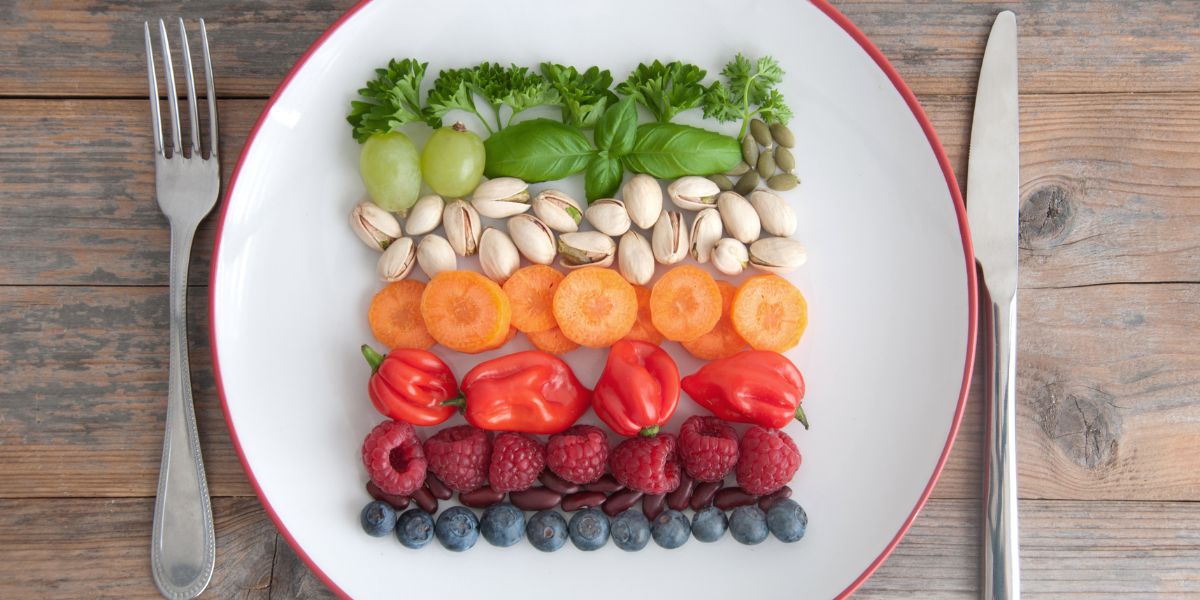The Ultimate Healthy Eating Guide for Busy Muslim Women
By: Sadaf Qadeer
Let’s be honest, ladies: life is busy. Whether it’s waking up to a toddler using your face as a trampoline, forgetting the one item you actually needed at the grocery store, or realizing you’ve been replying “InshaAllah” to emails like a voice note—the struggle is real. Finding time for yourself feels impossible. But here’s the thing: if you’re running on empty, you can’t keep pouring into everyone else’s cup.(And that cup might well be double-shot caffeinated too!)
It’s time to prioritize you — your health, your energy, and yes, even your sanity. And as Muslim women, we have the added blessing of aligning our physical well-being with our spiritual goals.
Step 1: Eat for Energy—Fuel Your Busy Days
Ever feel like you need a nap right after breakfast? Or like your energy levels go from “Superwoman” at Fajr to “flat battery” by mid-morning? It might be that your breakfast (or lack of) is the culprit. The key? Focus on whole foods that release energy slowly rather than spiking your blood sugar.
Start your day with protein: Think eggs, Greek yogurt, overnight oats or a hearty smoothie with nut butter and some spinach (trust me, you won’t taste it). These foods help you stay fuller longer and keep your energy stable.
Embrace complex carbs: Don't get stuck in a rut eating the same type of grains every day. Try to swap white rice and bread for their whole-grain cousins. Brown rice, quinoa, and whole-grain chapati give you sustained energy without the midday crash.
Don’t skip the fats: Healthy fats like avocado, olive oil, and nuts are your friends. They’re not just filling but also essential for brain health and hormone production.
“Eat of the good things which We have provided for you…” (Quran 2:172). Our faith reminds us to choose what nourishes us in body and soul. Think of your meals as acts of gratitude to Allah for the blessings of health.
Step 2: Balance Your Hormones—Say Goodbye to the Mood Swings
Hormones can sometimes feel like uninvited guests who rearrange your house without asking—leaving you irritable, tired, or craving all the wrong foods. The good news? You can bring balance back to your life with the right nutrition.
Prioritize protein and fiber at every meal: They help regulate blood sugar, which in turn keeps your hormones steady. Aim for lentils, chickpeas, or grilled chicken alongside a colorful salad.
Support your cycle with nutrient-rich foods: During PMS, reach for magnesium-rich foods like dark chocolate (yes, it’s healthy in moderation!), nuts, and leafy greens. During your period, iron from lean meat or spinach is a lifesaver.
Hydrate like it’s your job: Hormonal imbalances can worsen with dehydration. A simple way to remember? Keep a cute water bottle with you and sip away throughout the day.
And remember, the Prophet Muhammad (peace be upon him) advised us to maintain moderation in all things, even eating: “The son of Adam does not fill a vessel worse than his stomach… a few mouthfuls that keep his back straight are sufficient for him…” (Ibn Majah, 3349).
Step 3: Clear Your Mind—Boost Your Mental Clarity
How often do you forget why you walked into a room? Or stand in front of the fridge wondering, “What was I looking for? Oh right, my will to adult today.” Mental fog is real, but food can help.
Omega-3s are brain food: Fatty fish like salmon, chia seeds, and walnuts are your go-to. They improve focus and memory.
Limit the sugar rush: Sugary snacks might feel good for five minutes but leave you crashing soon after. Opt for fruit with a handful of nuts instead.
Mind your gut: A healthy gut means a healthy mind. Include probiotics like yogurt or fermented foods like kimchi in your diet.
Did you know that the Quran refers to honey as a healing food? “From within the bees is a drink of varying colors, in which there is healing for people…” (Quran 16:69). A spoonful of honey in warm water is an excellent way to start your day with both sunnah and health benefits.
Reflection Time: How to Make It Stick
Meal planning is your secret weapon: Spend 30 minutes each week planning meals. It’ll save you hours of decision fatigue later.
Set small goals: Maybe start with one healthy breakfast option for the week or swap sugary drinks for herbal tea.
Make dua for health and barakah: Ask Allah to bless your efforts and guide you to what’s best for your body and soul.
Reflect: What’s one change you can make today to fuel your body better? Write it down and commit to it for a week. Share your progress with a friend or in a journal.
Your Journey, Your Story
Sisters, your health is not a luxury; it’s a responsibility. By nourishing your body, you’re better equipped to fulfill your roles as a mother, daughter, sister, or friend. More importantly, you’re caring for the amanah (trust) Allah has given you.
I’d love to hear your thoughts. What works for you? What are your struggles? Drop a comment below, and let’s support each other on this journey. And don’t forget to check back for more posts about practical tips and heartfelt reflections on living your best life as a Muslim woman.
Until next time, take care of yourself. You deserve it.
This blogpost has been written by our team member sister Sadaf Qadeer, who is a student of knowledge, mother of two, an avid baker, cyclist and a fitness enthusiast. She graduated as a Biomedical Scientist from Denmark and added further credentials to her repertoire as a Faith-based NLP Practitioner, Menopause awareness coach and Diet and Nutrition advisor.





Leave a Comment